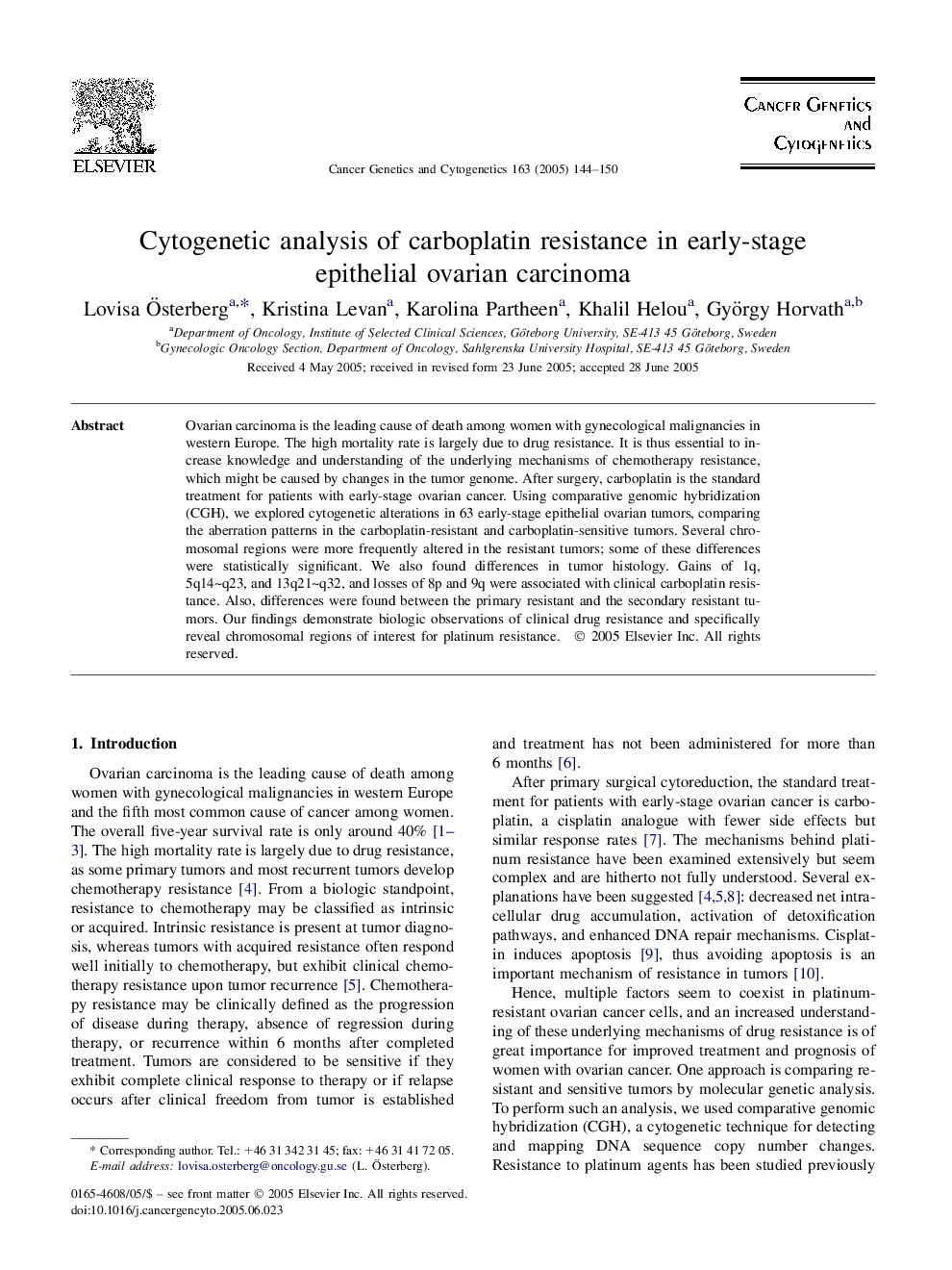| Article ID | Journal | Published Year | Pages | File Type |
|---|---|---|---|---|
| 10897728 | Cancer Genetics and Cytogenetics | 2005 | 7 Pages |
Abstract
Ovarian carcinoma is the leading cause of death among women with gynecological malignancies in western Europe. The high mortality rate is largely due to drug resistance. It is thus essential to increase knowledge and understanding of the underlying mechanisms of chemotherapy resistance, which might be caused by changes in the tumor genome. After surgery, carboplatin is the standard treatment for patients with early-stage ovarian cancer. Using comparative genomic hybridization (CGH), we explored cytogenetic alterations in 63 early-stage epithelial ovarian tumors, comparing the aberration patterns in the carboplatin-resistant and carboplatin-sensitive tumors. Several chromosomal regions were more frequently altered in the resistant tumors; some of these differences were statistically significant. We also found differences in tumor histology. Gains of 1q, 5q14â¼q23, and 13q21â¼q32, and losses of 8p and 9q were associated with clinical carboplatin resistance. Also, differences were found between the primary resistant and the secondary resistant tumors. Our findings demonstrate biologic observations of clinical drug resistance and specifically reveal chromosomal regions of interest for platinum resistance.
Related Topics
Life Sciences
Biochemistry, Genetics and Molecular Biology
Cancer Research
Authors
Lovisa Ãsterberg, Kristina Levan, Karolina Partheen, Khalil Helou, György Horvath,
